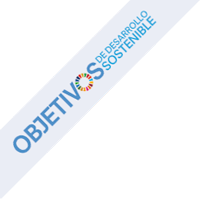
After finalizing the agreement to implement its food assistance plan in western Honduras, the United Nations World Food Program (WFP) has signed a new agreement with Fundación ETEA – Development Institute of Universuty Loyola to assist more than 1,500 families in western Honduras who have been severely affected by COVID-19 and hurricanes ETA and IOTA.
Among the main actions of the agreement is the distribution of cards for the purchase of food and household products in supermarkets. The cards are worth 1,800 lempiras each and will benefit 1,350 families.
In addition, three deliveries of sacks of food will be made to 180 families in the municipality of El Paraíso between February and May of this year.
As in the previous agreement, ETEA’s role is to coordinate the activities of the agreement with the Municipal Emergency Committee (CODEM) and to supervise that the beneficiaries are those selected by the WFP, thus avoiding any possibility of politicization of the process, given the current electoral campaign situation.
What criteria are followed in the selection of beneficiary families?
Priority has been given to those places with human settlements with high evidence of substandard housing (minimum habitability conditions required), with poor or no access to electricity, poor or no public lighting, no sanitary sewerage available and that are more than 4 kilometers away from a public health center or hospital and at least 2 kilometers away from an educational center.
As for the selection criteria, priority was given to those households living in one or more of the following situations:
- Subsistence farming families with more than 30% of their plantation affected.
- Households with a high rate of dependents (with a low number of family members receiving income)
- Families with a high number of vulnerable people, such as children under 5 years of age, pregnant and lactating women, the elderly or people with disabilities.
- Families with children with severe or moderate acute malnutrition
- Single parent families
- Dependence on subsistence agriculture; tenants or owners of less than 1 hectare of land, landless or migrant workers, such as coffee pickers (corteros)
- Loss of agricultural production of more than 30%.
- Lack of food reserves
- Loss of employment opportunities


